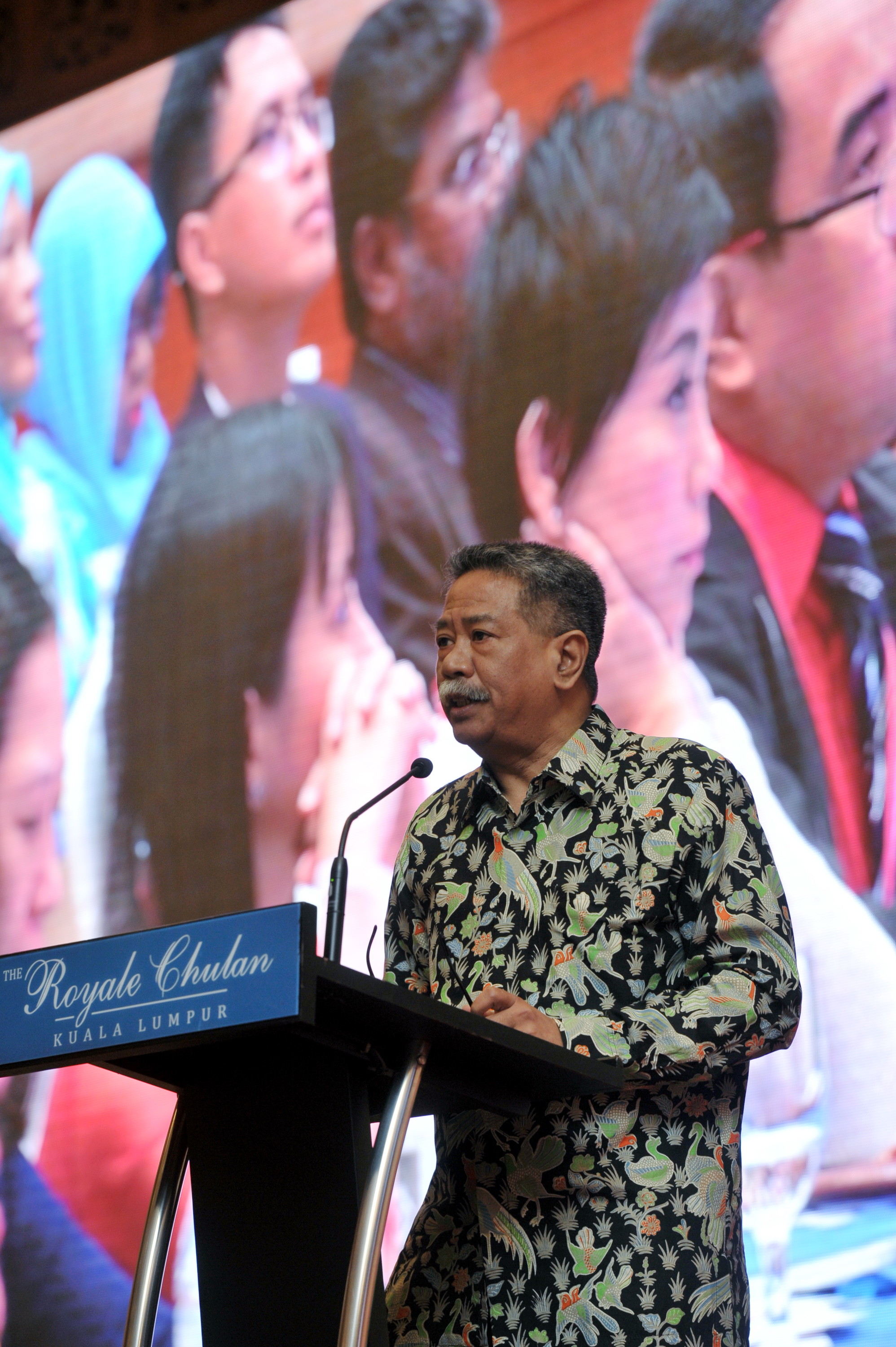ID :
403121
Fri, 04/08/2016 - 11:19
Auther :
Shortlink :
http://m.oananews.org//node/403121
The shortlink copeid
Making ASEAN People-Centred, A Big Challenge For ASEAN Community

By Balqis Jamaludin
KUALA LUMPUR, April 8 (Bernama) -- Making ASEAN people-centred and people- oriented, seems to be a big challenge in realising the ASEAN Community (AC), which will benefit the bloc's population of over 600 million people.
ASEAN Deputy Secretary-General for Community and Corporate Affairs, Dr AKP Mochtan, feels that it is like a "marathon race without a finishing line."
"This will be like a community building itself...it is a journey like a marathon race without a finishing line, we have to continue, see it as a work in progress that needs a clear milestone in making this improvement and that the people really feel the benefits," he said.
Sharing his views with Bernama on the sidelines of the inaugural ASEAN Editors' Summit recently, he said that one of the initiatives that could be taken to make ASEAN people-centred and people-oriented, was to cultivate the 'we' feeling and the sense of togetherness in the people's hearts.
In this regard, Mochtan opined that ASEAN youth, which constituted 60 per cent of the ASEAN population, was an important asset and torch bearers to realise the AC entity.
The AC, formally established in December last year under Malaysia's chairmanship, is premised on three pillars of cooperation - the ASEAN Political-Security Community (APSC), the ASEAN Economic Community (AEC) and the ASEAN Socio-Cultural Community (ASCC).
According to Mochtan, another challenge was narrowing the economic gap among member states in order to achieve the desired and noble goals of the AC, which he said would continue to be a priority.
In this context, he said the 10 member states - Brunei, Cambodia, Indonesia, Laos, Malaysia, Myanmar, the Philippines, Singapore, Thailand, and Vietnam - are expected to economically improve with better gross domestic product (GDP).
"When we talk about narrowing economic gaps, it is not that we are trying to make a country, which has the lowest per capita GDP, to be the same level with the country having one of the highest per capita GDPs in the world.
"We continue to ensure that ASEAN development is sustainable, the growth of ASEAN economic level through Intra-ASEAN Trade, free trade agreements (FTAs) and as immediate partner in the region through harmonisation of standards in trade, investment and services," he said.
Mochtan also touched on the issue of competition from major powers, which he said were keen to exercise their influence in the region.
According to him, this is a challenge for the ASEAN community in order to ensure ASEAN's unity and centrality in handling the competition from these major powers.
Citing the Trans-Pacific Partnership Agreement (TPPA) as an example, Mochtan said ASEAN must know how to use the 'influence' in complementing the ASEAN economies.
"The question is not either ASEAN or TPP. The question is how we complement and learn from each other," he said.
The trade pact, whose sensitive issues have been criticised in Malaysia and other countries, was signed on February 4 in New Zealand by the trade ministers of the 12 TPP countries including Malaysia.
ASEAN member states - Indonesia, the Philippines and Thailand - have indicated interest in joining the TPP. South Korea and Taiwan are also said to be keen to be parties of the trade agreement.
Touching on the plus factors to realise the AC, the deputy secretary-general pointed to the establishment of ASEAN lanes at some ASEAN airports, including Malaysia to facilitate easy access for visitors from the regional states to immigration check-in and check-out counters
"This is a good move as it makes ASEAN people really feel that they are being treated like ASEAN citizens," he said.
Malaysia, as the ASEAN Chair in 2015 has set up five ASEAN Lanes at the KL International Airport and KL International Airport 2 for travellers from ASEAN countries.
On ASEAN's progress as a whole, he was confident that as ASEAN prepared to celebrate its 50th anniversary next year, the regional grouping would continue to prosper and enjoy success even beyond 2067 when it reaches 100 years old.
He also noted the crucial task to ensure that ASEAN youth have a deeper sense of awareness and togetherness. (photoBERNAMA)
-- BERNAMA





